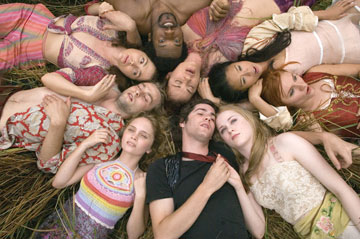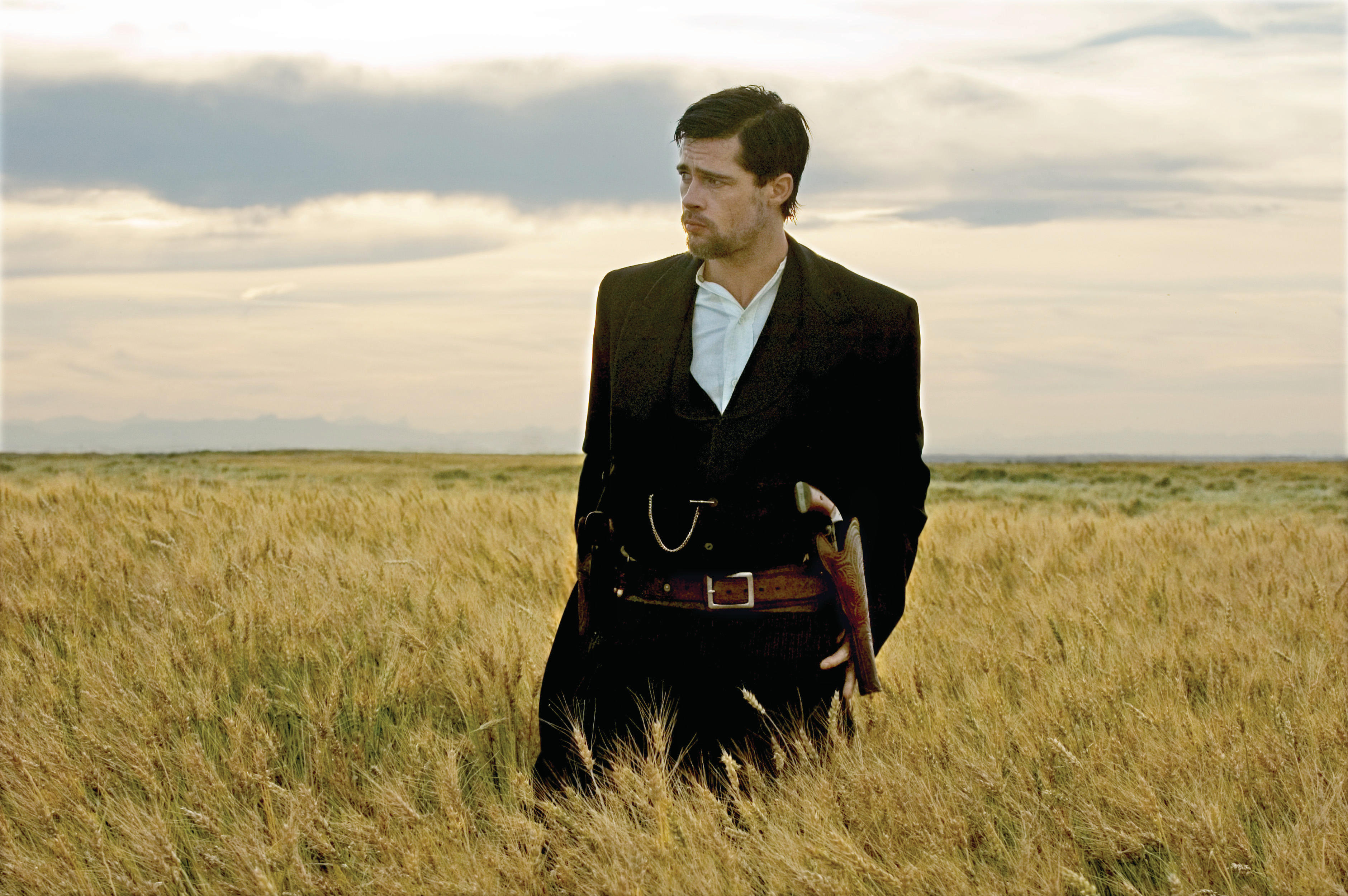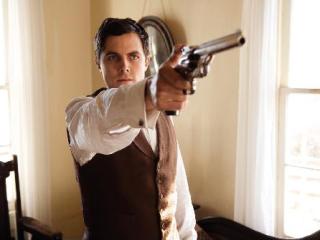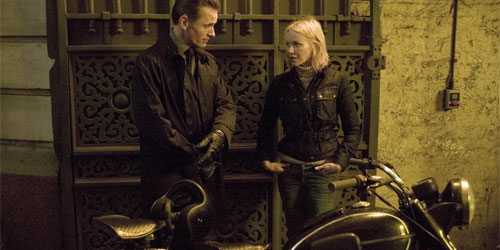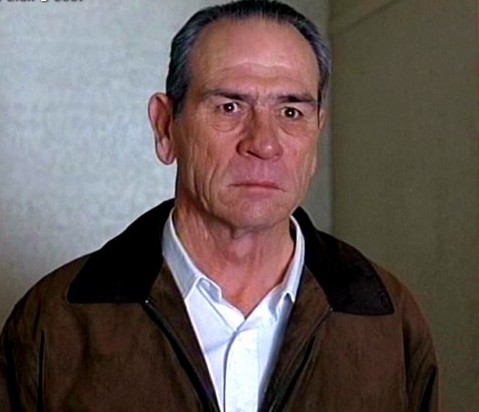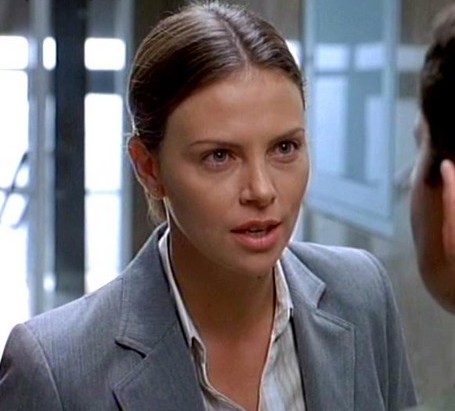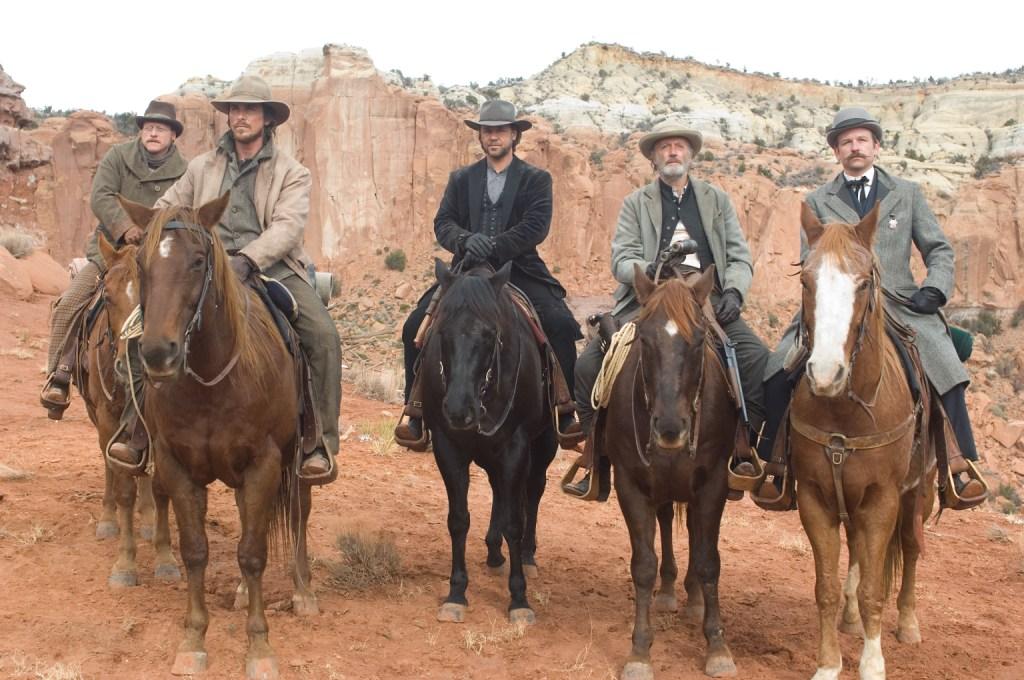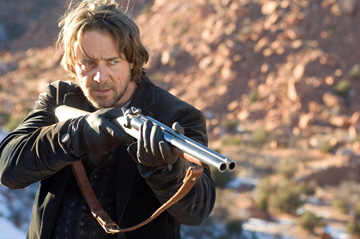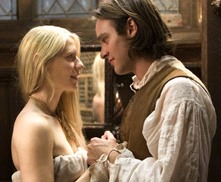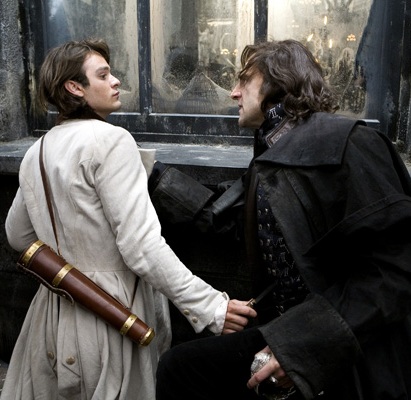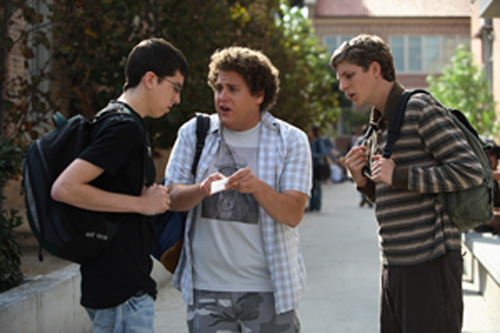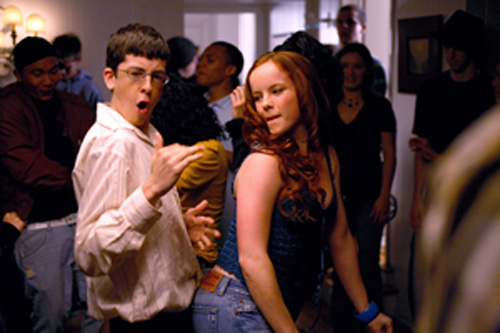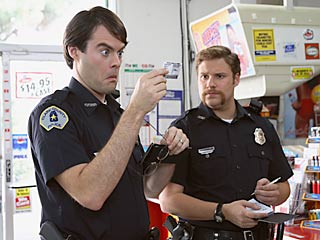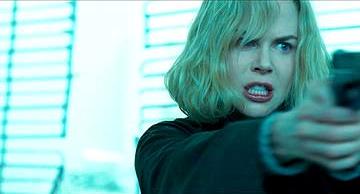 Move over, Erin Brockovich. The skimpy blouses and truth-to-power sass isn’t going to phase these corporate ne’er-do-wells in the slightest. An intelligent, well-made throwback to the conspiracy-minded thrillers of the 1970s (such as The Parallax View and Three Days of the Condor), first-time director Tony Gilroy’s Michael Clayton is a withering and mostly plausible excursion into the ethical dead zone that can emerge at the top levels of the money game. (Gilroy previously wrote the Bourne movies and that TNT new classic The Devil’s Advocate, with Keanu Reeves as a hotshot lawyer who ends up working for Satan (Al Pacino in full hoo-ah mode), and the influence of both can be seen here.) I didn’t really buy every element of the film, to be honest, but for the most part Michael Clayton works. It’s an adult, believable thriller that’s well worth checking out, and George Clooney, as per the norm, is excellent.
Move over, Erin Brockovich. The skimpy blouses and truth-to-power sass isn’t going to phase these corporate ne’er-do-wells in the slightest. An intelligent, well-made throwback to the conspiracy-minded thrillers of the 1970s (such as The Parallax View and Three Days of the Condor), first-time director Tony Gilroy’s Michael Clayton is a withering and mostly plausible excursion into the ethical dead zone that can emerge at the top levels of the money game. (Gilroy previously wrote the Bourne movies and that TNT new classic The Devil’s Advocate, with Keanu Reeves as a hotshot lawyer who ends up working for Satan (Al Pacino in full hoo-ah mode), and the influence of both can be seen here.) I didn’t really buy every element of the film, to be honest, but for the most part Michael Clayton works. It’s an adult, believable thriller that’s well worth checking out, and George Clooney, as per the norm, is excellent.
When we first meet Clooney’s Clayton, he’s in the middle of an illicit Chinatown poker game, wearily enduring the taunts of a toupeed yokel at the end of the table, when duty calls. A fixer for the legal firm of Kenner, Bach, & Ledeen, Clayton must venture out to Westchester in the middle of the night to reassure a high-end client (Denis O’Hare) who’s just committed a hit-and-run. (This being the real world, there’s not much he can do, Clooney or no.) On the way back, Clayton, in the grip of an ethical crisis that will later be explained, is briefly mesmerized by three horses standing in the early morning light. And, just as he reaches out to pet one of these chestnut mares, BAM! His car explodes. What turned Michael Clayton’s ride into an unlikely fireball? For that, we’ll have to venture four days into the past, when he was sent to Milwaukee to pick up Arthur Edens (Tom Wilkinson), a senior litigating partner who, a la Peter Finch in Network, has blown a fuse somewhere and can no longer handle his lifetime role as a corporate stooge. This poses a particular problem, as Edens was the architect of a $3 billion class-action defense for the agribusiness behemoth U/North, and his coming to Jesus, mid-deposition, couldn’t have happened at a worse time for the company. And, when Edens, in-between his flights of insanity, starts brandishing a smoking-gun memo and threatening to give it to the plaintiffs, elements at U/North decide they must take extra-legal action…and if Clayton gets in the way, well, he should know the score by now.
 Perhaps it’s a failure of imagination or just willful naivete, but, as with The Constant Gardener, I tend to have trouble believing corporations, however undeniably shady, have assassins on the payroll. (Blackwater notwithstanding, of course.) And, though it’s not entirely her fault, Tilda Swinton is wholly unbelievable as the fastidious, insecurity-wracked Karen Crowder, chief counsel for U/North (i.e. what passes for the Big Bad here.) From the moment her OCD character is introduced, practicing a television interview over and over again in the mirror, she feels more like a writerly construct than a person, and that feeling never goes away. (That being said, one of the funnier scenes in the movie involves Swinton and one of said assassins “taking a meeting” on a street corner, and trying to negotiate a kill-order in corporate legalese.)
Perhaps it’s a failure of imagination or just willful naivete, but, as with The Constant Gardener, I tend to have trouble believing corporations, however undeniably shady, have assassins on the payroll. (Blackwater notwithstanding, of course.) And, though it’s not entirely her fault, Tilda Swinton is wholly unbelievable as the fastidious, insecurity-wracked Karen Crowder, chief counsel for U/North (i.e. what passes for the Big Bad here.) From the moment her OCD character is introduced, practicing a television interview over and over again in the mirror, she feels more like a writerly construct than a person, and that feeling never goes away. (That being said, one of the funnier scenes in the movie involves Swinton and one of said assassins “taking a meeting” on a street corner, and trying to negotiate a kill-order in corporate legalese.)
Still, there are a number of noteworthy performances throughout Michael Clayton. Sydney Pollack is almost too convincing as Marty Bach, the firm’s take-no-guff man in charge. Thoroughly accustomed to the entitlements of power, Pollack’s Bach exudes a ruthlessly professional mien, and doesn’t suffer people who waste his time gladly. Equally scene-stealing is Caddyshack‘s Michael O’Keefe as Barry, Pollack’s #2. He doesn’t get a lot of run, but O’Keefe personifies the lifetime corporate comer who’s made it all the way up the ladder by dint of hard work and sheer weaselling, and will be damned if anyone’s going to screw it up for him now. And then there’s Clooney, who continues to surprise as an actor and shows us something different here. When we first hear Michael Clayton is $75,000 in the hole with some unsavory types who bankrolled his (and his alcoholic brother’s) failed restaurant — hence the card room — it’s hard not to think, “Oh, just get the gang together again and do another job.” But Clooney here — haggard, puffy, furtive — is no Danny Ocean. When he turns on the know-it-all charm here, it seems a suit of armor Clayton dons to do his job, so as to mask the stench of failure and compromise that threatens to leak out of every pore. If Michael Clayton turns out to be a rather conventional tale by the end, Clooney’s Michael Clayton still makes the trip worthwhile.


